If you can’t afford to purchase the car you want outright, you may need to weigh up the pros and cons of car finance vs car leasing. If you want full ownership of your next car and don’t mind depreciation, car finance could be the better choice. If you prefer regular vehicle upgrades and don’t want to worry about depreciation, car leasing may be more suitable.
Car finance involves taking out a loan to purchase a new or used car whereas car leasing is essentially a long-term car rental where you pay a monthly fee to use the car. Both require monthly payments and can help to make the cost of buying a new car more affordable.
If you’re considering getting a new vehicle, there are plenty of options to consider regarding how you will pay for it. Read on for more detail on the options available, including the pros and cons of each, so you can decide which is the right choice for you.
Table of Contents
- Car Finance: An Overview
- Advantages and Disadvantages of Car Finance
- Types of Car Finance Available
- Monthly Payments For Car Finance Agreements
- Car Leasing: An Overview
- Pros and Cons of Car Leasing
- Monthly Payments For Leasing A Car
- What is Personal Contract Hire?
- Choosing Between Car Finance and Leasing
Car Finance – An Accessible Route to Car Ownership
Car finance is a popular method of acquiring a new or used vehicle where a loan is taken out to pay for the car. The loan may be sourced from a specialist lender, or directly from the car seller. Upon approval, you can drive away your chosen car, paying for it in monthly instalments until the total cost plus interest is covered.
Potential Drawbacks of Car Finance
There are considerations to keep in mind while opting for car finance:
- Having a poor credit score can be a hurdle, though not necessarily a dead end. You may need to scout for a lender willing to provide you with a loan.
- If you don’t have a deposit, it might be challenging to secure a loan, and failing to keep up with payments can negatively impact your credit score.
- Depreciation of the car’s value over time is another factor worth considering.
- Depending on the type of finance agreement you take out, you may need to find a large sum to cover the balloon payment at the end of your fixed period.
Read more: Car finance without a deposit
Why Choose Car Finance?
Car finance is advantageous for several reasons:
- It’s an unsecured loan, meaning you don’t have to pledge any asset as security.
- It offers flexibility, with a variety of lenders and loan types to choose from. You can even dictate the loan repayment duration.
- The car is entirely yours, enabling you to modify or sell it, provided you adhere to your repayment schedule.
- Fixed monthly payment amounts
Types Of Car Finance To Consider
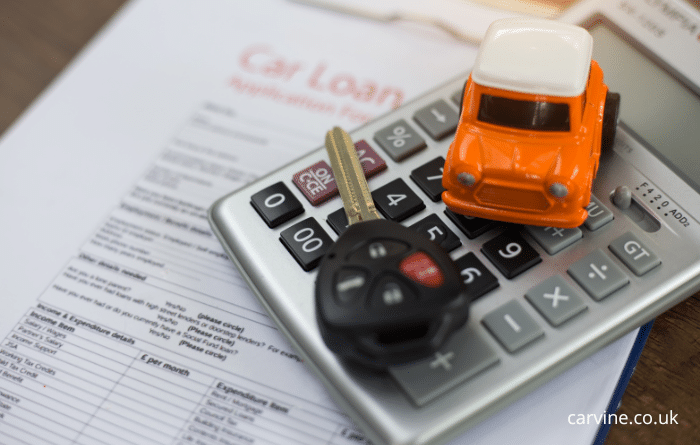
There are lots of different finance products to consider when exploring car finance, each with its own set of advantages and drawbacks:
Personal Contract Purchase (PCP)
This option allows lower monthly payments with the flexibility to return the car at the end of the term or buy it outright. A deposit is typically required, and the rest of the vehicle cost is split into monthly cost or a series of monthly payments. At the end of the term, you have the option to make a final ‘balloon’ payment to own the car, return the car, or trade it in for a new model.
Hire Purchase (HP)
This finance type involves paying a deposit upfront (usually around 10% of the car’s price) and then paying off the remaining balance, plus interest, over a set period. Once all payments are made, you own the car outright.
Personal Loans
Another alternative is taking a personal loan from a bank, building society, or other financial institution. You can spread the cost of the car over a term of one to seven years, and the interest rates can be competitive, especially for larger amounts. With a personal loan, you own the car outright from the start.
0% Credit Cards
If the cost of the car is low enough and your credit rating is good, you might consider buying it with a 0% purchase credit card. The key benefit is that you can spread the cost over the interest-free period. However, you must be disciplined to repay the balance before the 0% offer ends, or you’ll face high interest charges.
Peer-to-Peer Loans
These are loans provided by individuals or groups of individuals through online platforms. Interest rates can be competitive, but they often depend on your credit score.
Cash Payment
If you have enough savings, buying a car outright with cash can be a good option. You won’t have to worry about monthly payments, interest charges, or the stress of potential repossession.
Before choosing any car finance option, consider all aspects including your financial situation, your credit rating, and how long you plan to keep the car. It’s always best to compare different options to find the one that suits you best.
Monthly Payments For Car Finance Agreements
Monthly payments required on a finance agreement will vary depending on a combination of factors including the amount borrowed, the length of the loan term, the interest costs, and sometimes, the size of the initial payment or deposit.
- The total amount borrowed (also known as the principal) takes into account the cost of the car and any fees minus your deposit, if applicable.
- The loan term is the agreed period over which you will pay back the loan.
- Generally, a longer-term means smaller monthly payments but a larger total repayment due to accumulated interest.
- The interest rate, either fixed or variable, also impacts the monthly payment amount.
For example, if you finance a car worth £15,000 with a £2,000 deposit, borrowing £13,000 over 5 years (60 months) with a 4% annual interest rate, you would pay approximately £240 per month. However, the same loan over 3 years (36 months) would result in higher monthly payments of approximately £383, even though the total amount paid over the term would be less due to fewer interest charges. Always speak to a finance company to get the most accurate figures and leasing deals for your circumstances.
Car Leasing – Hassle-Free Temporary Car Ownership

Car leasing is akin to renting a car. You pay a monthly fee to a leasing company and in return, you have a car to drive but at the end of the lease period, you need to return the car as it’s not officially yours.
Cons of Car Leasing
Leasing a car comes with some potential drawbacks:
- You never actually own the car; it’s merely a long-term rental before you hand the car back.
- There might be extra charges involved. For instance, exceeding the mileage limit agreed with the lessor might lead to a penalty. Any damage to the car could also incur fees when you come to hand it back.
Benefits of Car Leasing
On the brighter side, car leasing offers notable advantages:
- You can switch vehicles frequently, making it an excellent choice for those who love driving the latest models.
- You aren’t concerned with the depreciation in value of the vehicle since you don’t own it.
- Fixed monthly payments for easy budgeting.
Monthly Payments For Leasing A Car
Monthly payments for leasing a car are primarily determined by factors such as the vehicle’s initial price, its estimated residual value at the end of the lease term (how much it’s expected to be worth), the length of the lease agreement or term, and the interest rate or ‘money factor’.
Unlike financing, when leasing a car, you’re not paying for the total cost of the vehicle, but rather the portion of the car’s value that you use during your lease term. This is why monthly lease payments can often be lower than monthly finance payments for the same car and term.
For example, let’s say you lease a car with an initial price of £25,000 and an estimated residual value of £15,000 after 3 years (36 months). You’re effectively paying for the £10,000 depreciation over those three years. If we consider an interest rate equivalent of 3%, your monthly lease payments would be around £294. However, if you were to finance the full £25,000 for the same 3-year term and interest rate, your monthly finance payments would be approximately £726, because you are paying off the entire vehicle, not just its depreciation.
What Is Personal Contract Hire?
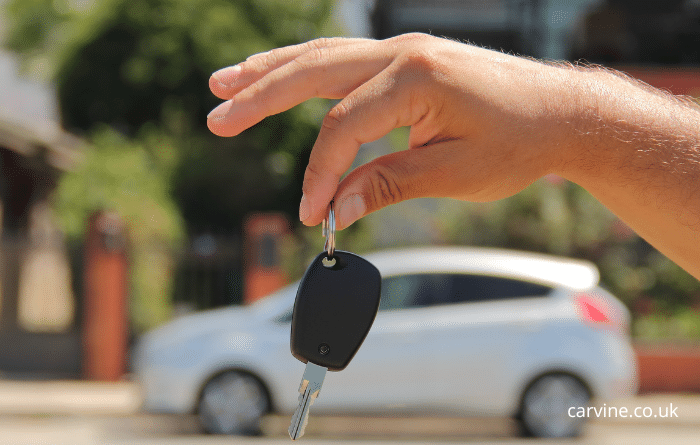
Personal Contract Hire (PCH), is another phrase for car leasing and here’s how this method of vehicle financing typically works:
- Agreement Term: You agree to a contract term, typically between 2 to 5 years. This duration determines the period over which you will have the car and make the payments.
- Initial Rental: You pay an initial rental (similar to a deposit), typically equivalent to three, six, or nine monthly payments.
- Monthly Rental Payments: You then make fixed monthly rental payments for the use of the vehicle throughout the contract period.
- Mileage Limit: Your contract will have a pre-agreed mileage limit. If you exceed this limit, there will be additional charges.
- Vehicle Return: At the end of the lease term, you return the car. If the car has damage beyond normal wear and tear or has exceeded the mileage limit, there may be additional charges.
Key Points:
- You never own the vehicle with PCH. At the end of the term, you return the car to the leasing company.
- Monthly payments are usually lower compared to other finance options because you’re essentially paying for the vehicle’s depreciation during the contract term, not the entire vehicle value.
- You have the opportunity to drive a new car every few years.
- Maintenance packages can often be included in the agreement, covering routine servicing and repairs.
It’s essential to consider your driving habits, financial situation, and personal preferences before choosing a Personal Contract Hire agreement.
Finance or Leasing – Which Suits Your Needs Best?
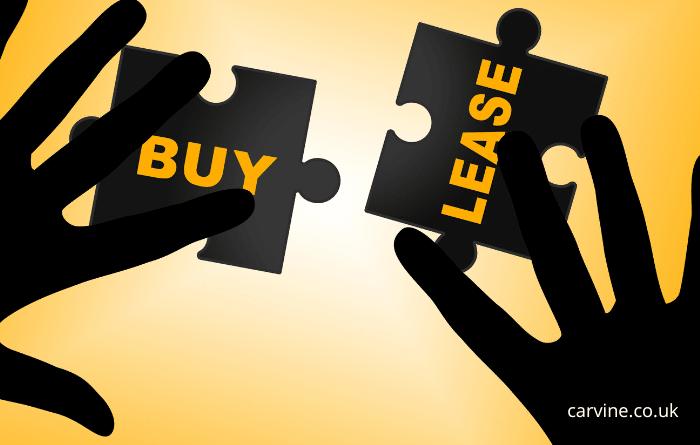
Determining the better option between car finance and leasing depends on your personal circumstances. If you appreciate the freedom to regularly upgrade your vehicle and lower monthly costs, car leasing could be your preferred route. Conversely, if you’re keen on full ownership of your car, then car finance is usually the superior choice, and there are plenty of different car finance options to choose from.
It’s crucial to remember that there are plenty of different lenders available, with some offering more favourable terms than others and some that specialise in lending to drivers with low credit scores, so it’s important to shop around.
At carvine.co.uk, we pride ourselves on being a reputable and trusted provider of car finance solutions. Our mission is to equip you with the information necessary to make informed decisions when it comes to vehicle financing.
FAQs
What is a balloon payment?
A balloon payment in a car finance context, often found in Personal Contract Purchase (PCP) agreements, is a large final payment due at the end of the contract if you choose to purchase the vehicle. This payment is set at the start of the agreement and is based on the predicted value of the car at the end of the term. By deferring a significant part of the car’s cost to this final payment, your regular monthly instalments are kept lower. At the end of the PCP term, you can either make the balloon payment to own the car, return the car, or trade it in for a new one.
How To Get Low Monthly Payments When Buying A Car
To get low monthly payments when buying or financing a car now, consider the following strategies:
- Opt for a Longer Loan Term: Spreading the cost of the car over a longer term will reduce your monthly payments, but remember this could mean paying more in total interest.
- Provide a Larger Deposit: The more money you can put down initially, the less you’ll need to borrow, which can reduce your monthly payments.
- Choose a Cheaper Car: Opting for a less expensive vehicle can significantly lower your monthly payments.
- Consider Leasing or PCP: These options typically offer lower monthly payments as you’re only covering the car’s depreciation, not its full value.
- Maintain Good Credit: A higher credit score can help you secure better interest rates, which can lower your monthly payments.
Remember, it’s essential to balance low monthly payments with the total cost of the finance agreement to ensure you’re getting the best overall finance deal.
Where to find car finance deals
To find car finance deals, you can explore:
1. Car Dealerships: They often provide finance options like HP, PCP, and leasing.
2. Banks/Credit Unions: These traditional institutions offer auto loans, often with competitive rates.
3. Online Lenders: Websites like Carvine.co.uk offer quick and convenient car loans.
4. Car Finance Brokers: These intermediaries can help you navigate and find competitive lease deals elsewhere.
5. Peer-to-Peer Platforms: Connect with investors willing to lend money, often at competitive rates.
6. Credit Card Companies: Some offer 0% interest deals that could be used for car finance.
Always compare offers, consider the total repayment cost, and thoroughly read all terms before signing lease contract.

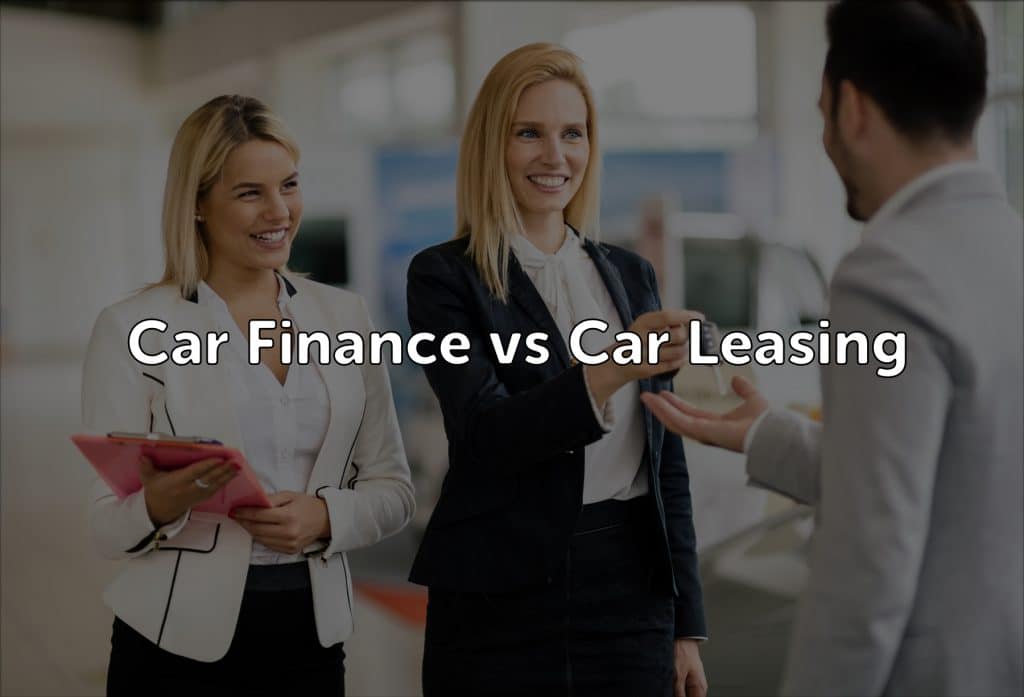
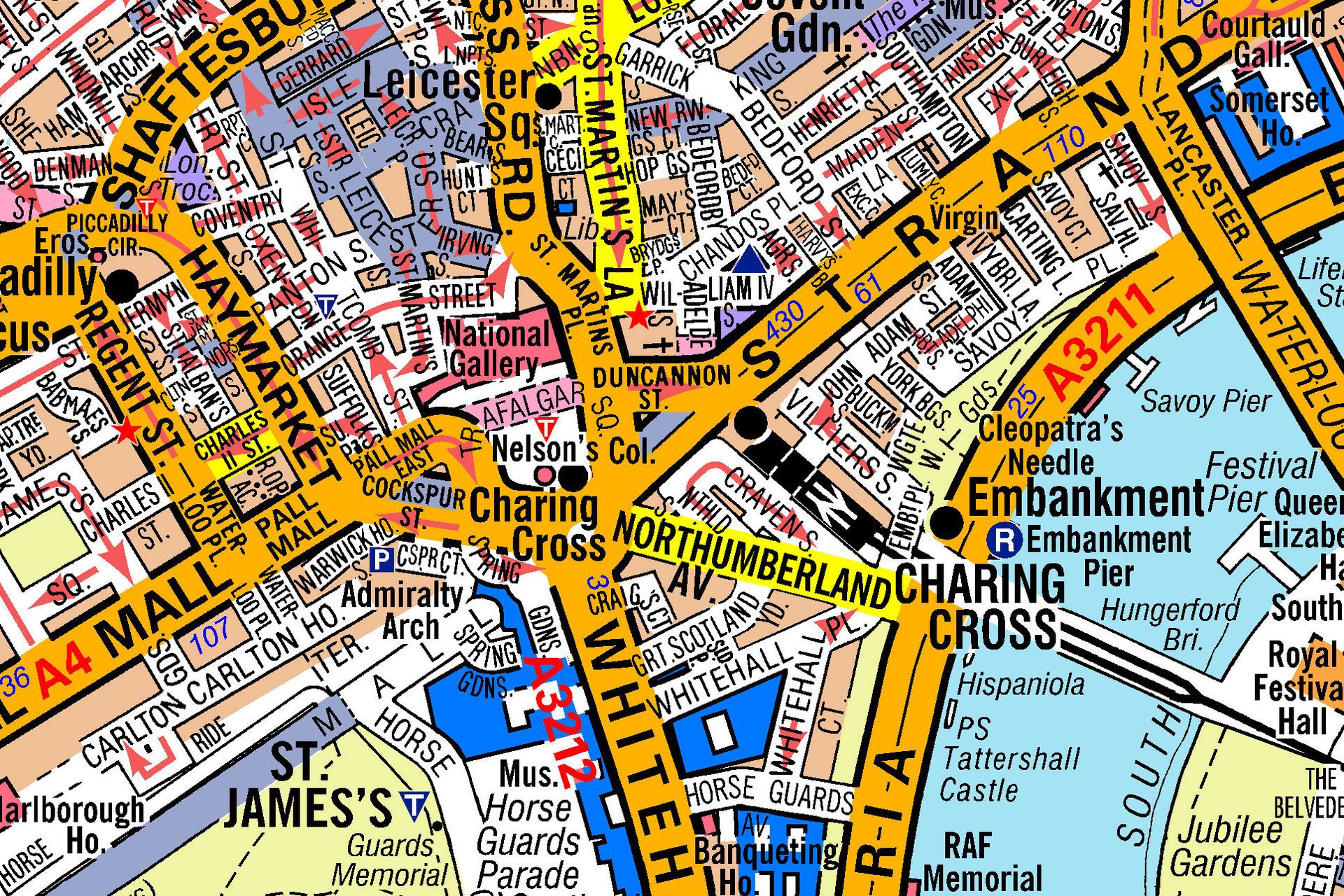

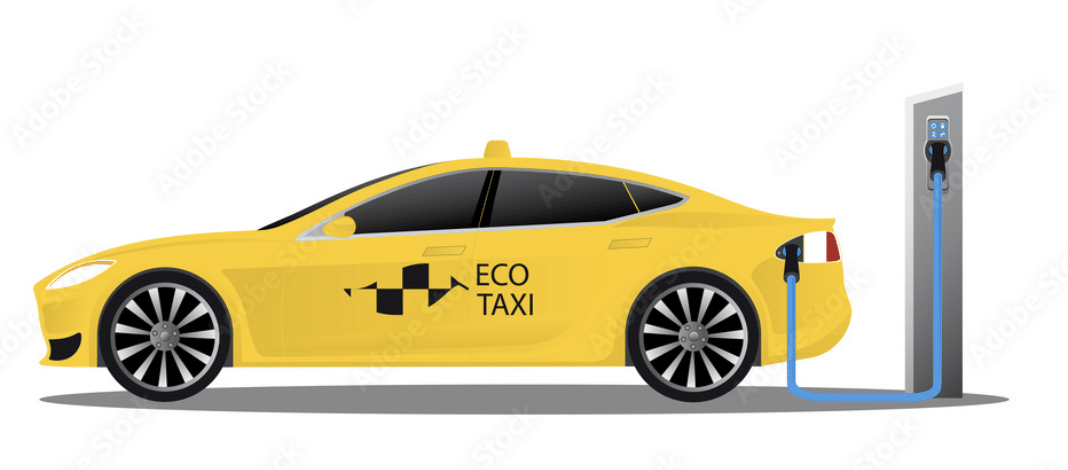

Add comment